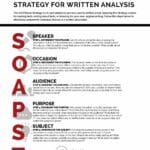Finding the Best Professors at Houston Community College
Choosing the right classes significantly impacts your academic success, and a crucial part of that is finding professors whose teaching styles resonate with your learning preferences. At Houston Community College (HCC), resources like Rate My Professors (RMP) and HCC’s Evaluation for Greater Learning Student Survey System (EGLS3) can help you make informed decisions.
Decoding Rate My Professors (RMP)
RMP is a student-driven platform offering insights into professors’ teaching styles. Students rate professors based on helpfulness, clarity, and easiness.
- Helpfulness: This metric gauges a professor’s support and approachability, indicating their willingness to assist students.
- Clarity: This reflects how well a professor explains complex concepts, making the material accessible and understandable.
- Easiness: This rating reflects the overall workload and manageability of the course, not necessarily the simplicity of the content. A higher easiness score may suggest a lighter workload, while a lower score could indicate a more demanding course.
HCC Professor Ratings: A General Overview
On RMP, HCC professors generally receive positive ratings, suggesting a supportive learning environment. The average scores are likely around:
| Metric | HCC Average | Potential Interpretation |
|---|---|---|
| Helpfulness | 3.6 | Most professors are perceived as supportive and approachable. |
| Clarity | 3.5 | Professors generally explain concepts effectively. |
| Easiness | 2.8 | Courses tend to have a moderate, manageable workload. |
These are averages, and individual experiences may vary.
Shining Examples and Tips
While averages provide a general overview, individual professor ratings can offer more specific insights. Examples of highly-rated professors at HCC (based on student feedback) might include:
- Pamela Golden (English): Known for engaging lectures, helpfulness, and a reasonable workload.
- Daniel Hageman (Psychology): Perceived as incredibly helpful, potentially with a more demanding course.
- Haitham Abdelmoaty (Engineering): Considered supportive, with a manageable workload and clarity potentially varying by student.
Tips for Using Professor Ratings:
- Starting Point: Use ratings as a starting point, recognizing that individual experiences differ.
- Deep Dive into Reviews: Focus on the content of student reviews to understand teaching styles.
- Combine Resources: Use both RMP and HCC’s EGLS3 system for a broader perspective.
- Word-of-Mouth: Talk to other students for firsthand accounts.
By using these resources, you can create a learning experience that sets you up for success at HCC. Remember, research is ongoing and perceptions can change. Be open to exploring various learning environments. Are you having trouble getting quality sleep? Here’s something to help you. Follow the effective method by Huberman Sleep Cocktail and enjoy deep and restful sleep.
Beyond Rate My Professor: Exploring the Best Websites for Professor Ratings and Reviews
Choosing the right professor can significantly impact your learning experience. Professor rating websites offer valuable insights, but with various options available, it’s important to know which ones best suit your needs. Rate My Professors (RMP), with its vast database of 19 million ratings for 1.7 million professors across 7,500 schools, dominates the landscape. This platform allows students to rate professors on clarity, helpfulness, and easiness. However, alternative platforms offer unique perspectives. Professor rating websites empower students to make informed decisions, impacting classroom experiences and academic success. If you’ve been searching for a convenient and discreet way to enjoy tobacco, then you need to try Grizzly Tobacco Pouches.
Sites like Professors.Directory offer a different approach, organizing ratings by school and department. Beyond simple ratings, some platforms provide detailed reviews, course information, and even grade distributions, offering a more holistic view of teaching effectiveness. Professor Richard’s positive review from a student illustrates this: “Professor Richards has got to be the best professor I ever had at HCC. She is patient, her teaching style is beneficial to learning AP2, she uses flash cards, quizzes, she repeatedly talks to you …”
While concerns exist regarding bias and accuracy, professor rating websites remain a valuable tool for students navigating the complexities of higher education. Ultimately, the “best” website depends on individual needs. Experiment, combine online information with other resources, and engage in critical thinking to develop a well-rounded understanding of a professor’s teaching style and effectiveness.
Beyond Rankings: Discovering the World’s Most Impactful Professors and Their Universities
Defining the “best” professors globally is a complex task, much like comparing different flavors of ice cream—everyone has their preferences. University rankings, like Times Higher Education (THE) and QS World University Rankings, provide a starting point by evaluating factors like teaching quality, research, and industry connections. For instance, Oxford held THE’s top spot for nine consecutive years (as of 2025 data), illustrating its sustained excellence. MIT, consistently ranked highly by both THE and QS, also exemplifies a strong academic powerhouse.
While prestigious universities often dominate these rankings, student reviews, like those on Rate My Professors, offer valuable insights into individual teaching styles. Student experiences at HCC, with professors like Hannah Richards and Ndu Dikeocha, demonstrate the platform’s utility. “Best” is subjective: defining criteria like research output, teaching quality, industry impact, and student mentorship reveals a more nuanced picture of professorial excellence.
Beyond rankings and reviews, several factors contribute to a professor’s impact: research influence, pedagogical innovation, industry engagement, and student mentorship. Emerging global universities are attracting top academic talent, potentially reshaping the landscape of professorial excellence in the coming years. By considering these multifaceted aspects, we can gain a richer understanding of exceptional educators and the institutions where they thrive.
Decoding Rate My Professor Difficulty: What a 5 Really Means
Rate My Professor’s 1-to-5 difficulty scale, where 5 represents the most challenging course as perceived by students, often raises questions about what it truly signifies. A 5 on Rate My Professor’s difficulty scale signifies the most challenging course experience as perceived by students. It’s important to understand that these ratings are subjective, reflecting student perception rather than objective course content. Various factors influence these perceptions, including workload, grading criteria, teaching style, and individual student preparedness. While a high difficulty rating may be daunting, it can also indicate a rigorous and rewarding learning experience.
Difficulty should not be confused with the platform’s separate “Overall Quality” rating. A professor can receive a high difficulty rating and still be considered an excellent teacher. Older articles referencing “Easiness” ratings on Rate My Professor add another layer of complexity. This reversed scale, where 5 indicated the easiest course, should be considered outdated. Understanding the nuances of Rate My Professor’s difficulty scale empowers students to make informed decisions about their coursework. By understanding these nuances, students can use the difficulty rating as one factor among many when making informed course selections.
- Unlock Filipino Culture: A Deep Dive into Traditions and Practices - April 23, 2025
- Unlock Spanish Culture: Insights & Opportunities Now - April 23, 2025
- White Spirit Uses & Substitutes: A Deep Dive for Pros & DIYers - April 23, 2025
















1 thought on “Unlocking Academic Success: Navigating HCC Professor Ratings”
Comments are closed.